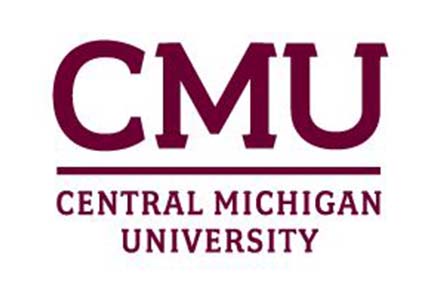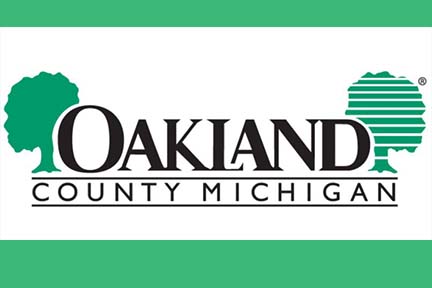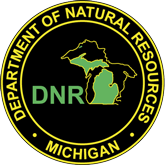
by Becky Andrus | May 10, 2022 | Regional News

FOR IMMEDIATE RELEASE
May 10, 2022
Contact: Press@michigan.gov
Gov. Whitmer Announces $1.4 Million Awarded to Support Entrepreneurial Growth in Central Michigan
LANSING, Mich. – Today, Governor Gretchen Whitmer joined the U.S. Secretary of Commerce Gina M. Raimondo to announce that the Economic Development Administration (EDA) is awarding a $1.4 million grant to Central Michigan University for renovations to the Central Michigan University Research Corporation incubator and accelerator.
This investment will support local entrepreneurs through office renovation and upgrades to provide a safer working environment following the coronavirus pandemic. The EDA investment will be matched with $352,320 in local funds and is expected to create 100 jobs, retain 30 jobs and generate $5 million in private investment.
“Today’s investment will help the Central Michigan University Research Corporation improve its facilities and empower entrepreneurs,” said Governor Gretchen Whitmer. “This investment will help us continue growing our economy, creating good-paying jobs, and building on our manufacturing and R&D strengths. This month, we opened the Facility for Rare Isotope Beams at Michigan State University and the Wacker Innovation Center in Ann Arbor. We must keep investing in every region of Michigan to tap into the entrepreneurial energy in every county of our great state. Our efforts to grow the economy are working—unemployment is 4.4%, we’ve added 174,000 jobs year over year, and we are working together to lower the costs of essentials like childcare and housing and putting money in people’s pockets with $400 auto refund checks and proposed tax cuts for seniors and working families. Let’s keep Michigan moving by investing in our economic development and the kitchen-table issues.”
“President Biden is committed to helping communities tackle the unique challenges that the coronavirus pandemic presented,” said Secretary of Commerce Gina M. Raimondo. “This EDA investment in the Central Michigan University Research Corporation will enhance its facilities to support home-grown high-tech entrepreneurs, who will be a long-term source of jobs and private investment for the region.” “The Economic Development Administration is pleased to support Central Michigan University and its efforts to build a more resilient regional economy,” said Assistant Secretary of Commerce for Economic Development Alejandra Y. Castillo. “The Central Michigan University Research Corporation is an anchor facility for entrepreneurs in the region where they can safely meet in-person and return to pre-pandemic productivity.”
“This investment will strengthen the University’s efforts to provide our entrepreneurs and small businesses with the space and resources they need to get their businesses up and running,” said Senator Debbie Stabenow. “Congratulations to Central Michigan. It’s exciting to see the University transform new technology and innovation into new jobs and new businesses for Michigan.”
“Central Michigan University continues to play a vital role in creating jobs and spurring growth throughout Michigan by supporting entrepreneurs and small businesses – the lifeline of our economy,” said Senator Gary Peters. “This federal support will ensure the Central Michigan University Research Corporation can effectively continue working to uplift innovation in the region.”
“CMU’s Research Corporation helps bring local businesses together to collaborate on investments that benefit mid Michigan residents and our local communities,” said Congressman John Moolenaar (MI-04). “Renovating CMURC’s incubator will help foster future partnerships that contribute to the region’s economy and I congratulate the leadership at CMU for their work in securing this funding.”
About the U.S. Economic Development Administration (www.eda.gov) The mission of the U.S. Economic Development Administration (EDA) is to lead the federal economic development agenda by promoting competitiveness and preparing the nation’s regions for growth and success in the worldwide economy. An agency within the U.S. Department of Commerce, EDA invests in communities and supports regional collaboration in order to create jobs for U.S. workers, promote American innovation, and accelerate long-term sustainable economic growth.
|

by Becky Andrus | May 10, 2022 | Health and Wellness
Press Release
FOR IMMEDIATE RELEASE: May 10, 2022
CONTACT: Lynn Sutfin, 517-241-2112, SutfinL1@michigan.gov
MDHHS urges testing as part of Hepatitis Awareness Month
Nearly 2,000 Medicaid beneficiaries being treated for
hepatitis C through the We Treat Hep C Initiative
LANSING, Mich. – Gov. Gretchen Whitmer has proclaimed May as Hepatitis Awareness Month and Thursday, May 19 as Hepatitis Testing Day in Michigan.
In recognition, the Michigan Department of Health and Human Services (MDHHS) is urging Michiganders to get tested for hepatitis B and C and highlighting one year of progress of the department’s We Treat Hep C Initiative. Launched on April 1, 2021, the initiative is designed to eliminate hepatitis C virus (HCV) in Michigan by increasing access to hepatitis C treatment among Michigan Medicaid and Healthy Michigan Plan beneficiaries. Since April 1, 2021, nearly 2,000 Michigan Medicaid beneficiaries living with hepatitis C have received curative treatment.
Viral hepatitis primarily affects the liver. The hepatitis B virus (HBV) and HCV, the two most common types of viral hepatitis, are leading causes of liver cancer and the most common reason for liver transplants in the United States.
HBV is transmitted from person-to-person through contaminated blood or body fluids. HBV can spread from infected mothers to their infants at birth (perinatal HBV), through unprotected sex or through contact with blood or body fluids of a person who has the virus.
HCV is spread through contact with blood from an infected person and may also be spread from infected mothers to their infants at birth (perinatal HCV). People with HCV infection are often undiagnosed because they rarely experience symptoms or feel sick. There is no vaccine for hepatitis C; however, there are effective medications that can cure HCV infection when taken once daily for as little as eight to 12 weeks.
“As people infected with hepatitis B or C often do not experience symptoms, testing is critical to detect whether treatment may be warranted,” said Dr. Natasha Bagdasarian, chief medical executive. “In recognition of Hepatitis Awareness Month and Hepatitis Testing Day, MDHHS is urging Michiganders to ask their health care providers for a hepatitis test at their next appointment.”
The Centers for Disease Control and Prevention now recommends HCV testing among all adults at least once in their lifetime, and hepatitis B and C testing among all pregnant people during every pregnancy, regardless of age.
Since the launch of the We Treat Hep C Initiative, there have been 186 new HCV treatment prescribers added; however, the success of the program is highly dependent on the clinical community testing and treating more patients for HCV. To build clinical capacity to treat HCV in Michigan, MDHHS contracted with Wayne State University’s Midwest AIDS Training and Education Center and Henry Ford Health to provide clinical consultation, case-based discussions and trainings to clinicians to guide them through hepatitis C disease management and treatment. Providers are encouraged to utilize the clinical resources available at Michigan.gov/WeTreatHepC.
For more information, visit the Hepatitis and We Treat Hep C webpages.

by Becky Andrus | May 10, 2022 | Regional News
CORRECTED: Applications open for 14 Oakland County Solid Waste Planning Committee vacancies
May 11, 2022, OAKLAND COUNTY, MI. – The Oakland County Board of Commissioners is seeking applications to fill 14 vacancies on the county’s Solid Waste Planning Committee. All openings are terms not to exceed two years. The deadline to apply is 4:30 p.m. on Friday, June 3.
The Board is accepting applications for the following positions:
- Three individuals representing the general public
- Four individuals representing the solid waste management industry
- Two individuals representing environmental interest groups
- One county elected official
- One city elected official
- One township elected official
- One representative of industrial waste generators
- One individual representing the regional solid waste planning agency (SEMCOG)
The committee meets as needed to address requests to amend the Oakland County Solid Waste Plan and/or requests from the State to update the Plan. Members will be required to attend all relevant meetings.
To qualify, elected officials and those representing the general public must be current residents of Oakland County. Representatives of the solid waste management industry, environmental interest groups, industrial waste generator and SEMCOG must conduct business and be active in the county.
Those who would like to apply must submit an online application, which is available at https://forms.oakgov.com/79.
For more information about the BOC, please visit www.oakgov.com/boc or call 248-858-0100.

by Becky Andrus | May 10, 2022 | Recreation
|
|
|
|
|
May 10, 2022
Contact: Joanne Foreman, 517-284-5814
Now that temperatures finally are warming up across Michigan, it’s time to head outdoors! Whether you’re planning a weekend on the water or digging into a landscaping project, this summer’s NotMISpecies webinars offer tips to help you prevent and manage invasive plants and animals to protect the places you love.
 With more people ̶ and more invasive species ̶ on the move, decontamination (or “decon,” for short) is now an essential part of travel. Upcoming webinars will show you the best tools and methods for assuring no invasive hitchhikers tag along on your journeys. If invasive plants have crept onto your property, NotMISpecies is also offering some do-it-yourself tips for management. With more people ̶ and more invasive species ̶ on the move, decontamination (or “decon,” for short) is now an essential part of travel. Upcoming webinars will show you the best tools and methods for assuring no invasive hitchhikers tag along on your journeys. If invasive plants have crept onto your property, NotMISpecies is also offering some do-it-yourself tips for management.
Supported by the Michigan Invasive Species program, the monthly, hourlong webinars are designed to keep people informed about available programs, current research and emerging issues in the state and the Great Lakes region. Question and answer sessions and links to resources help attendees get the most out of each presentation. |
“Clean It Up, Drain It Out, Dry It Off” (9 a.m. Thursday, May 12) will show how easy it is for boaters to adopt the Clean, Drain, Dry process to prevent the spread of aquatic invasive species. Kelsey Bockleman from Michigan State University Extension and Kevin Walters from the Michigan Department of Environment, Great Lakes, and Energy will provide a live demonstration of each step in the process. The team will demonstrate watercraft decontamination essentials using basic tools like towels and brushes and display the features and operation of a trailer-mounted mobile boat washing system.
 “Didymo: What You Need to Know” (9 a.m. Thursday, June 9) will provide important information for anyone fishing or boating in Michigan’s rivers. The December 2021 discovery of didymo (also known as “rock snot”), an aquatic nuisance algae species, in the Upper Manistee River signals the need for increased decontamination practices by all river and stream users. Dr. Ashley Moerke of Lake Superior State University will provide an overview of didymo’s ecology, potential effects on cold-water organisms, and what LSSU researchers are doing to better understand spread, impacts and potential triggers of didymo nuisance blooms. Moerke will be joined by staff from the Department of Natural Resources and EGLE to answer questions and discuss techniques to help prevent further spread. “Didymo: What You Need to Know” (9 a.m. Thursday, June 9) will provide important information for anyone fishing or boating in Michigan’s rivers. The December 2021 discovery of didymo (also known as “rock snot”), an aquatic nuisance algae species, in the Upper Manistee River signals the need for increased decontamination practices by all river and stream users. Dr. Ashley Moerke of Lake Superior State University will provide an overview of didymo’s ecology, potential effects on cold-water organisms, and what LSSU researchers are doing to better understand spread, impacts and potential triggers of didymo nuisance blooms. Moerke will be joined by staff from the Department of Natural Resources and EGLE to answer questions and discuss techniques to help prevent further spread. |
“Not in My Backyard! Managing Invasives with Help from CISMAs” (9 a.m. Wednesday, July 27) demonstrates how you can control invasive plants in your landscape. Vicki Sawicki of North Country Cooperative Invasive Species Management Area and Elise Desjarlais of Lake to Lake CISMA will share identification tips and treatment tricks for common invasives including garlic mustard, Japanese knotweed and several invasive shrubs. Learn the importance of monitoring, re-treating and restoring beneficial vegetation after invasive species removal and how to get additional resources from your local CISMA.
The webinar series takes a break in August and will be back in September with more great information.
If you can’t wait for its return, take some time to catch up on topics you might have missed, including this year’s forecast for spongy moth (formerly gypsy moth), collaborative efforts in invasive carp management, and the threat posed by spotted lanternfly.
Recorded versions of all previous NotMISpecies webinars are available at Michigan.gov/EGLE/Outreach under “Featured Webinar Series.”
Michigan’s Invasive Species Program, a collaborative effort of the departments of Natural Resources; Environment, Great Lakes, and Energy; and Agriculture and Rural Development, coordinates and supports invasive species initiatives across the state and provides support through the Michigan Invasive Species Grant Program. |
|
|
|
|

by Becky Andrus | May 10, 2022 | Environmental
FOR IMMEDIATE RELEASE
May 10, 2022
Steven Noble, Electronics Recycling Specialist, Nobles4@michigan.gov 517-449-6153
EGLE Media Office, EGLE-Assist@Michigan.gov, 517-284-9278
EGLE announces funding and application deadlines for electronics recycling grants
The Michigan Department of Environment, Great Lakes, and Energy (EGLE) announces $250,000 in available funding for Rural Electronics Grants. The deadline for grant applications is July 2, 2022.
This grant opportunity will support increased access to proper electronics recycling in the rural areas of the state. Grants can be used to support improvements to current collection facilities; support electronics recycling events leading up to the establishment of new permanent collection locations; support the collection, handling and proper recycling of consumer electronics; provide education to residents on the proper collection, handling and recycling of household batteries; and upgrade operations to provide increased efficiency at registered electronics recyclers.
The funding is made available through the Renew Michigan Fund. Eligible entities include cities, villages, townships, charter townships, counties, tribal governments, conservation districts, municipal solid waste or resource recovery authorities, non-profit organizations, health departments, colleges or universities, and regional planning agencies. For-profit Michigan-based registered electronics recyclers are eligible for operational improvement funds.
The maximum request amount per collection location and collection event grants is $20,000 per location. Other grants are available at lesser amounts. Applicants are encouraged to discuss their proposal with the Electronics Program staff in EGLE’s Materials Management Division prior to submittal. Funds are available on a first-come first-served basis.
To view the Request for Proposal and for more information about the EGLE recycling grants program, go to Michigan.gov/MIRecycles. Click on the Grants tab and scroll down to the electronics section.
Stay up to date on other EGLE news at Michigan.gov/MIEnvironment.
###
|
|








 With more people ̶ and more invasive species ̶ on the move, decontamination (or “decon,” for short) is now an essential part of travel. Upcoming webinars will show you the best tools and methods for assuring no invasive hitchhikers tag along on your journeys. If invasive plants have crept onto your property, NotMISpecies is also offering some do-it-yourself tips for management.
With more people ̶ and more invasive species ̶ on the move, decontamination (or “decon,” for short) is now an essential part of travel. Upcoming webinars will show you the best tools and methods for assuring no invasive hitchhikers tag along on your journeys. If invasive plants have crept onto your property, NotMISpecies is also offering some do-it-yourself tips for management.





